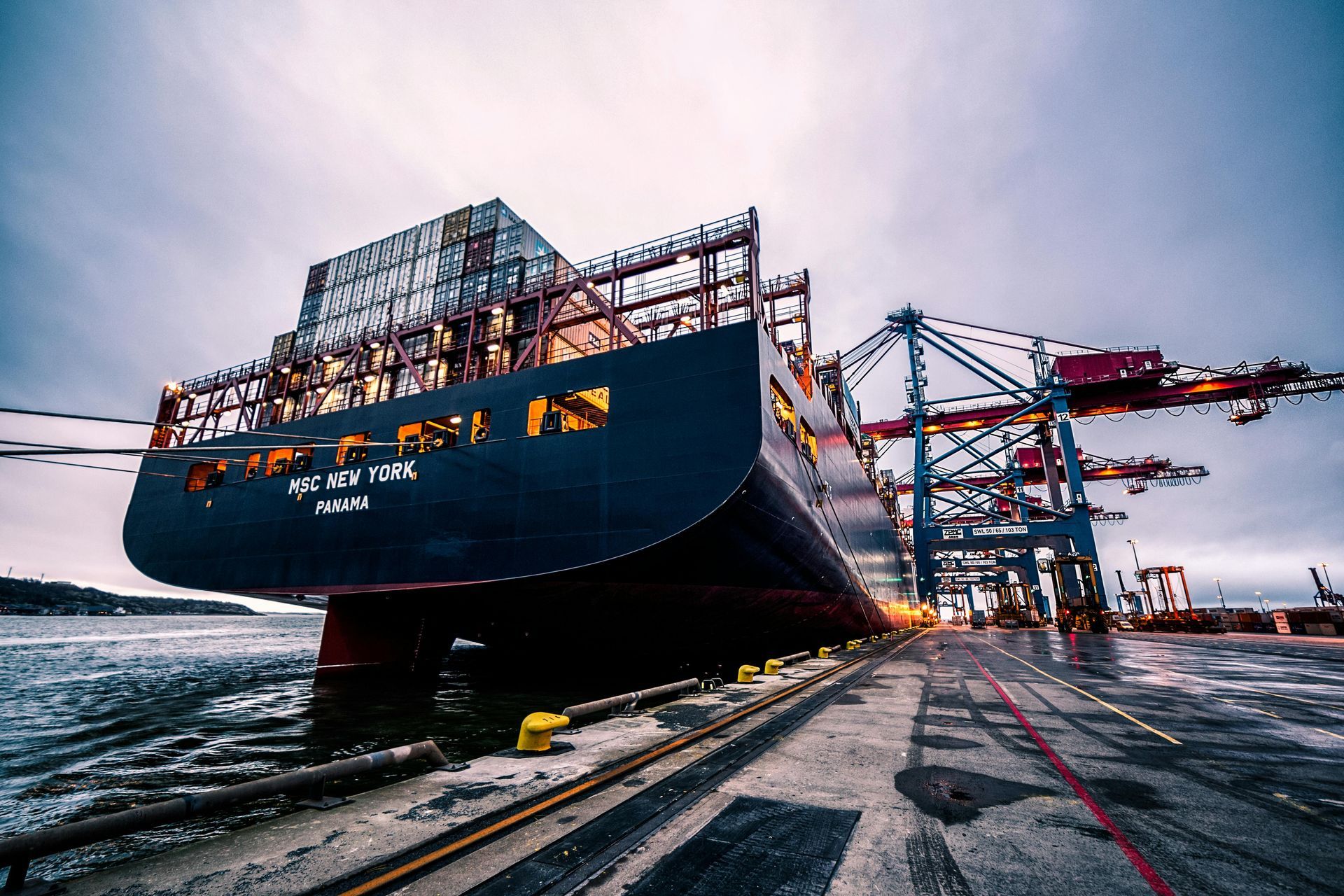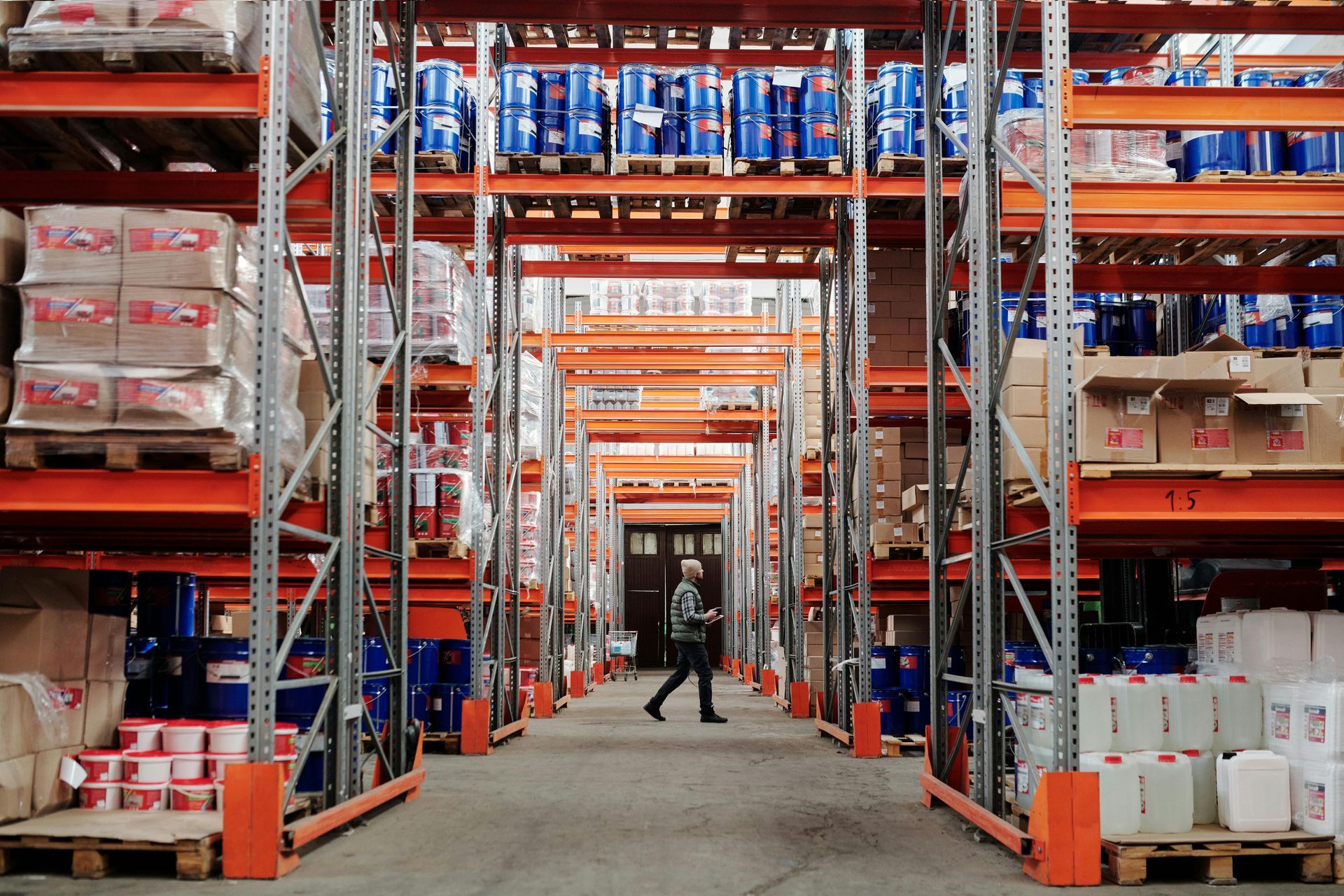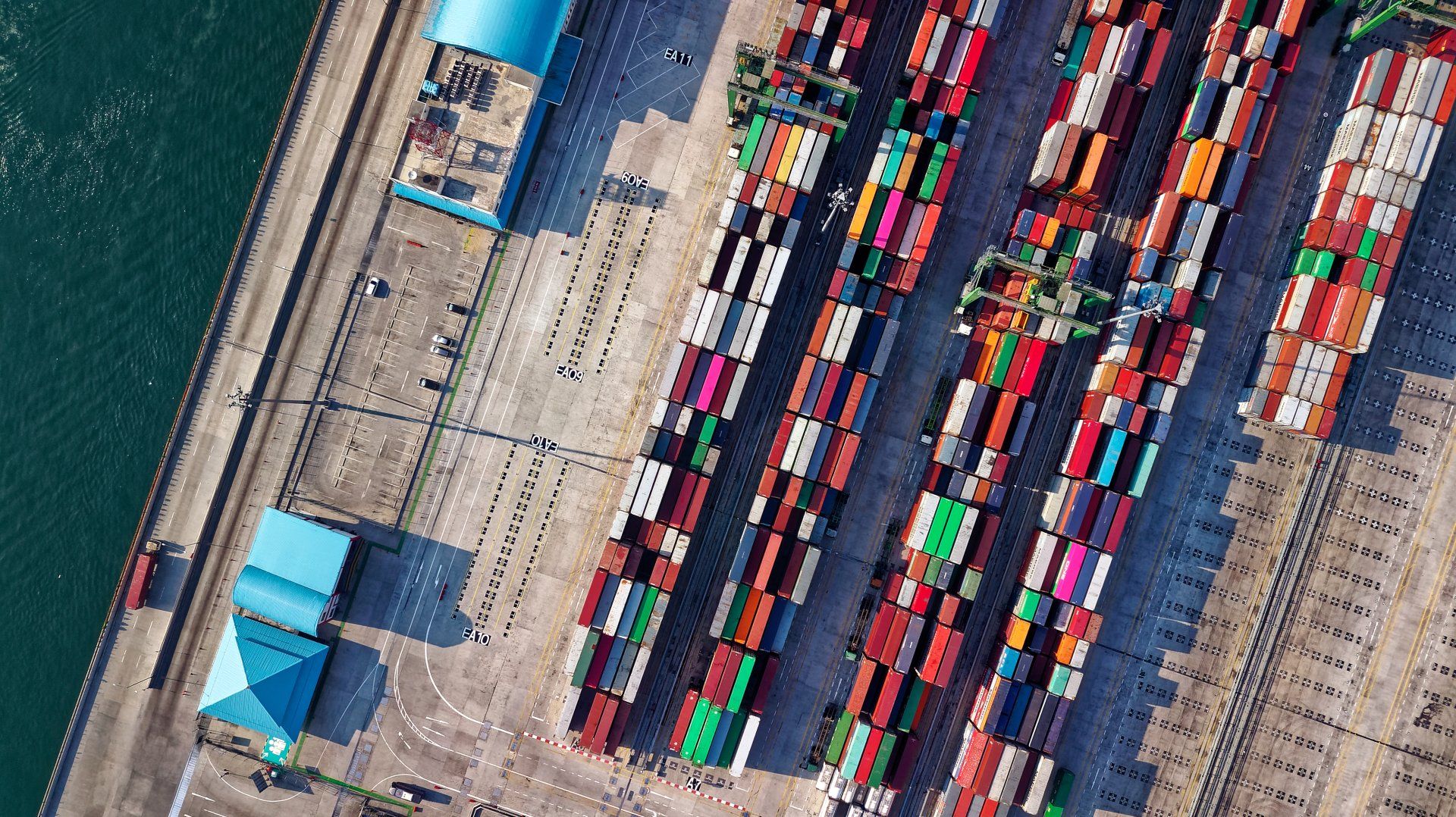THE LATEST
HR Trends
blogs
Search the blog

In 2025, Australian supply chains are at a crossroads. Operational complexity and geopolitical tension have hit like never before! As businesses grapple with ongoing disruptions driven by political unrest, trade disputes, cyber threats, and shifting alliances, understanding these geopolitical forces has become critical, not just for supply chain leaders but for anyone involved in recruitment and talent strategy in this sector. Here’s what I’m seeing through my work at Alexander Appointments, combined with the latest information on how geopolitical shifts are reshaping supply chains in Australia and globally, and what companies and candidates need to know to stay resilient and competitive. The New Geopolitical Reality Impacting Supply Chains Global supply chains today aren’t just logistical marvels optimised for cost and speed, they’ve become geopolitical flashpoints. Conflicts in Eastern Europe, tensions in the South China Sea, trade wars, sanctions, and state-sponsored cyberattacks increasingly disrupt the smooth flow of goods, cause unexpected price spikes, and challenge risk management models that worked only a few years ago. Examples: Political instability can stop manufacturing in key regions or block critical trade routes. Tariffs and sanctions can change sourcing options overnight, forcing urgent supplier diversification. Cyberattacks targeting ports, payment systems, or logistics software create new vulnerable points that were previously underestimated in supply chain design. These forces have transformed supply chains from simple networks of suppliers and transport into fragile, intertwined ecosystems, where a single geopolitical event in one region can filter through operations globally. What Australian Businesses Are Doing and Why Talent Matters Businesses in Australia and the Asia-Pacific region are responding to these challenges with a combination of strategic supply chain redesign, investment in technology, and a focus on people who can competently steer through uncertainty. Key initiatives I’ve observed Supplier diversification and nearshoring: To avoid over-reliance on politically risky regions, companies are shifting goods closer to home or spreading risk across multiple suppliers. Digital transformation: AI-driven forecasting, blockchain tracking, and cyber resilience measures are becoming non-negotiable in supply chain operations. Flexibility and agility: Firms are redesigning logistics routes and inventory strategies to quickly pivot in response to sanctions, tariffs, or sudden conflicts. These shifts highlight why, from a recruitment perspective, the demand for supply chain and logistics professionals who combine operational expertise with strategic foresight and technological know-how has never been stronger. What This Means for Supply Chain Professionals in Australia If you’re a candidate in supply chain or logistics, now is the time to improve skills that help businesses manage and prevent geopolitical risk: Risk management and scenario planning: Understanding how geopolitical events ripple through supply and logistics is critical. Being able to anticipate and model different outcomes sets top candidates apart. Tech proficiency: Fluency in digital tools supporting supply chain visibility, data analytics, and cybersecurity has become essential. Cross-cultural and geopolitical awareness: Appreciating how regional politics impact trade can help you better coordinate international operations and vendor relationships. Adaptability and problem-solving: In a world where disruption often comes suddenly, your ability to pivot and innovate quickly is invaluable. Hiring managers are looking for people who don’t just execute day-to-day logistics, but who bring a strategic mindset that aligns with this turbulent environment. Building Resilience Through People and Partnerships Geopolitical shifts aren’t going away—they’re amplifying global supply chain complexity and risk. The companies best equipped to thrive in this environment invest not just in technology or alternative suppliers, but in extraordinary talent that understands how to steer through instability and drive resilience. Navigating supply chain disruptions requires more than operational tweaks; it demands partnership, foresight, and exceptional people. Australian supply chains and the professionals behind them are rising to the challenge. Whether you’re seeking strategic talent or looking for your next opportunity, Alexander Appointments is here to help. Reach out to me for a confidential discussion about recruitment solutions or career opportunities in supply chain and logistics.

If you’ve been in the sector as long as I have, you’ll know we are currently at a crossroads: warehouses are getting smarter, logistics are going green, and demand for tech-savvy talent is surging. But our greatest opportunity (and challenge) right now is attracting the next generation of Gen Z and Millennials into supply chain roles. Why Gen Z and Millennials Matter Let’s face it, the industry’s old playbook doesn’t cut it anymore. Younger professionals are entering the workforce with new priorities: they’re digitally fluent, socially conscious, and want more than just a job—they want impact and meaning. What’s Holding Them Back? Old-school image: People still think “supply chain” means clipboards and forklifts, when in reality it’s about data analytics, sustainability solutions, and creative problem-solving. Limited exposure: Unlike tech or finance, supply chain careers aren’t front-of-mind when students or grads plan their futures. Growth doubts: Myths persist that career advancement in logistics is slow, or that the work is repetitive (it isn’t!). What Are They Looking For? Purpose and Impact: Gen Z and Millennials want work that “means something.” If your company is moving towards carbon neutrality, championing ethical sourcing, or supporting communities, shout it from the rooftop. Tech-Forward Roles: The fastest-growing areas are in automation, digital supply chain management, and data analysis. Highlight the innovative technologies and platforms your team uses. Diversity & Inclusion: Younger talent expects inclusive environments where different voices and ideas are welcomed. Flexibility: Hybrid and remote options are increasingly important, even in operational roles. Flexible shifts or digital-first teams can set you apart. Learning & Progression: Transparent career paths, mentoring, and access to upskilling (think: online courses and cross-functional projects) are key. Practical Steps to Attract Gen Z and Millennials Modernise Your Messaging: Update your job ads and social media, ditch jargon for language about impact, growth, and innovation. Partner With Education: Collaborate with universities and TAFEs. Guest speaking and internship programs place your company front and centre. Highlight Technology and Sustainability: Feature automation, eco-friendly initiatives, and supply chain digitisation in your employer branding. Promote Career Development: Publicise real stories of young team members climbing the ranks or expanding skills across different functions. Partner with a recruitment firm that can assist in promoting your brand to their network: A specialised recruitment agency can broaden your organisation's reach well beyond traditional job postings. Real Experiences Make a Difference Recently, I spoke with a 25-year-old logistics coordinator who joined a Sydney-based 3PL after completing a supply chain internship. What hooked him? The chance to lead a process automation project in his first year, plus exposure to green supply chain initiatives. Stories like this one are powerful magnets for new talent! Final Thought... The future of supply chain is fast, flexible, and full of impact. To attract Gen Z and Millennials, organisations need to reframe their roles and workplace culture as places where they can innovate, create change, and build rewarding careers.

Australia’s supply chain is at a pivotal point. In the aftermath of global disruption, we’re no longer just dealing with shipping delays or rising fuel prices. A deeper, more systemic challenge has emerged - a growing and persistent shortage of skilled labour across the logistics and supply chain sector. This issue is not new, but it’s becoming more severe. From warehousing and distribution to procurement and freight coordination, the gaps in the workforce are beginning to show, and the consequences are rippling across the economy. Why Is There a Talent Shortage in Supply Chain? There is no single cause, but more a combination of long-standing structural issues and recent accelerants: 1. Ageing Workforce and Low New Entry Rates A large proportion of skilled supply chain professionals, particularly in transport and warehousing, are nearing retirement age. At the same time, the sector struggles to attract younger workers. Roles like forklift operation, freight handling, and long-haul driving are increasingly seen as unattractive, especially when compared to more flexible or remote opportunities in other industries. 2. Demand Outpacing Growth E-commerce has fundamentally changed the logistics landscape. The need for warehousing staff, pick-packers, and last-mile delivery drivers has skyrocketed. But workforce development hasn’t kept pace. Training programs, apprenticeships, and employer investment in talent pipelines have not scaled in proportion. 3. Geographic & Regional Inconsistency While urban centres may have access to a larger talent pool, many regional operations are struggling to find and retain staff. Even in metro areas, high cost of living and transport challenges are affecting availability and retention, particularly for shift-based roles. 4. Licence and Certification Bottlenecks In areas like road transport, not only are HC/MC licensed drivers in short supply, but delays in training, testing, and compliance are also contributing to the backlog. This is creating a pinch point that can't be resolved overnight. Where Is the Pressure Felt Most? In speaking with supply chain leaders and HR managers across Australia, a few high-impact areas consistently come up: Warehousing: High turnover, low availability of skilled workers, and limited on-the-job training capacity are limiting operations. Employers are competing for the same pool of talent, driving up costs without improving outcomes. Freight & Transport: Driver shortages are affecting both long-haul and metropolitan routes. This is not just an issue of capacity, it’s also one of reliability, service standards, and driver wellbeing. Planning & Procurement: As companies look to better forecast demand and reduce waste, the importance of experienced planners and procurement professionals has grown. Yet the competition for these analytical and strategic roles is pushing smaller firms out of the market. What Are the Broader Implications? This isn’t just a recruitment problem, it’s a business continuity issue. Talent shortages are leading to: Increased operational delays Rising labour costs Lower margins Reduced capacity for growth or innovation Greater risk exposure in peak periods (e.g., holiday seasons) For Australia, an island nation reliant on robust domestic and international logistics, these issues have national significance. The ability to move goods efficiently from port to warehouse to shelf is essential, not just for business, but for public confidence, affordability, and economic stability. Where Do We Go From Here? There’s no quick fix, but a few key themes are emerging from industry discussion: Workforce Development Needs Urgent Attention: Government, education providers and industry leaders need to collaborate on training pathways, incentives for entry-level roles, and improved visibility of careers in logistics. Culture and Conditions Must Evolve: To attract and retain talent, companies need to offer more than a payslip. This includes predictable rosters, better health and safety, career progression, and in some cases, flexibility where possible. Data and Demand Planning Are Critical: Businesses that invest in strong forecasting, integrated systems, and agile planning teams will be better equipped to navigate ongoing shortages. This issue is complex, and it’s not going away anytime soon. But by understanding the underlying causes and talking openly about the realities, we can start to move toward long-term, sustainable solutions. If you’re working in or alongside the supply chain sector, I’d love to hear your perspective. What are you seeing? Where are the biggest pinch points in your organisation or region? And what’s working, or not, in addressing them?

As the Australian business landscape continues to evolve in 2025, the recruitment industry has seen significant changes in how talent is sourced, retained, and managed. Here's a quick look into the recruitment trends shaping Australia across these key sectors. Transport Logistics The transport logistics sector has become the backbone of Australia’s economy, driven by e-commerce growth, infrastructure development, and global trade recovery post-pandemic. This has created a surge in demand for skilled professionals in roles such as supply chain managers, logistics coordinators, and fleet operations specialists. Key Trends: Technology Integration: Companies are prioritising candidates with experience in supply chain management software, real-time tracking tools, and data analytics to streamline operations. Sustainability Focus: With stricter environmental regulations, logistics employers are looking for talent experienced in green practices and sustainable logistics solutions. Labour Shortages: A shortage of truck drivers and warehouse workers remains a significant challenge, leading to increased focuses on upskilling programs and the recruitment of overseas talent. Finance The finance sector in Australia is continuing to thrive, with businesses adapting to rapid technological changes and regulatory demands. Recruitment in this sector is becoming increasingly competitive, as employers look for a mix of technical expertise and strategic thinking. Key Trends: Demand for Tech-Savvy Professionals: Skills in AI, blockchain, and fintech are highly sought after, particularly for roles such as financial analysts and compliance officers. Focus on Risk and Compliance: Regulatory scrutiny has led to a spike in demand for risk managers, internal auditors, and compliance officers. Workplace Flexibility: Candidates expect hybrid or remote working options, which is pushing employers to offer more flexible work arrangements to attract top tier talent. Business Support Business support roles remain essential for ensuring smooth operations across industries. From executive assistants to office managers, these roles are instrumental in driving productivity and organisational efficiency. Key Trends: Hybrid Work Adaptation: As hybrid models become the norm, business support staff are increasingly required to master digital tools such as project management platforms and virtual meeting software. Focus on Soft Skills: Employers value interpersonal skills, problem-solving abilities, and adaptability as key traits for business support roles. Increased Role Specialisation: There is growing demand for specialised roles such as HR coordinators and event planners, which reflects the need for tailored expertise within organisations. Overarching Recruitment Trends in 2025 Across all of these sectors, many broader trends are helping to reshape the recruitment landscape in Australia: Rise of AI in Recruitment: AI tools are being used to streamline candidate screening and match talent with roles more efficiently, ensuring quicker hiring decisions. Focus on Diversity and Inclusion: Employers are placing greater emphasis on building diverse teams, both to enhance workplace culture and meet broader ESG (Environmental, Social, and Governance) goals. Candidate Experience is Key: In a competitive job market, companies are investing in smooth recruitment processes to leave a positive impression on candidates, from engaging job ads to efficient onboarding. Upskilling and Continuous Learning: To address skill gaps, many organisations are partnering with training providers to upskill employees in critical areas like technology and leadership. Looking Ahead As we move further into 2025, Australia’s recruitment landscape will continue to be shaped by technological advancements, shifting workplace dynamics, and evolving candidate expectations. For businesses and job seekers, staying ahead of these trends is crucial to success.

In 2023, supply chains globally faced unprecedented challenges, ranging from political tensions to extreme weather events, all surrounded by ongoing economic uncertainties. These challenges highlighted the importance of resilience and adaptability in supply chain operations. As we navigate through 2024, confidence in supply chains is gradually resurging, but the key will undoubtedly lie in embracing data-driven decision-making and strong contingency planning.


